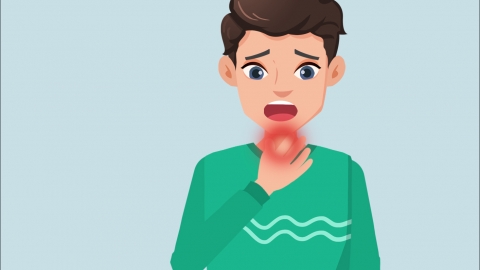What causes a dry and sore throat?
Generally speaking, the throat refers to the pharynx. Possible causes of dryness and pain in the throat include dry environment, excessive voice use, chronic pharyngitis, tonsillitis, and reflux laryngitis. It is recommended to seek timely medical consultation to determine the cause and receive targeted treatment. Specific explanations are as follows:

1. Dry Environment
A low humidity environment can cause rapid evaporation of moisture from the throat mucosa, leading to dryness and pain. Maintain appropriate indoor humidity, using a humidifier if necessary, and drink plenty of water to keep the throat moist.
2. Excessive Voice Use
Extended talking, singing, or loud shouting can fatigue the throat muscles and damage the vocal cords, resulting in dryness and pain in the throat. Use your voice appropriately, avoid prolonged continuous talking or singing, and allow adequate rest for the throat to recover.
3. Chronic Pharyngitis
Chronic pharyngitis is usually caused by recurrent acute pharyngitis, upper respiratory tract infections, or unhealthy lifestyle habits. Long-term congestion and swelling of the pharyngeal mucosa can lead to dryness and pain in the throat, often accompanied by a foreign body sensation in the throat, coughing, or nausea. Follow medical advice to use medications such as compound borax mouthwash, cetavlon iodine lozenges, or pharyngitis tablets.
4. Tonsillitis
Tonsillitis may be caused by bacterial infections such as streptococcus. The inflammation causes the tonsils to swell and become congested, irritating the throat and causing dryness and pain. Symptoms may also include fever, difficulty swallowing, and swollen neck lymph nodes. Under a doctor's guidance, medications such as penicillin V potassium tablets, cefradine capsules, or Pudi Lan Xiao Yan oral liquid can be used for treatment.
5. Reflux Laryngitis
Reflux laryngitis may occur when stomach acid flows back to the throat, irritating the throat mucosa and causing an inflammatory response, which leads to dryness and pain in the throat. Accompanying symptoms may include hoarseness, coughing, and retrosternal pain. Under a doctor's guidance, medications such as omeprazole enteric-coated capsules, rabeprazole sodium enteric-coated tablets, or hydrotalcite chewable tablets can be used for treatment.
In daily life, maintain humid indoor air and regularly open windows for ventilation. Use your voice properly and avoid prolonged loud talking or singing. Maintain a balanced diet, consume more foods rich in vitamins and water, and avoid spicy or greasy foods.







